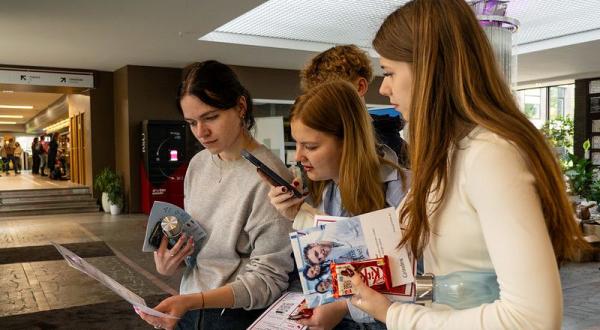Family Mediation as One of the Most Effective Ways to Resolve Disputes
Mediation is a useful resource for social workers and other professionals who work with families. What is mediation and when is family mediation used? What does a mediator do? How can mediation help resolve conflicts? Evija Kļave, lecturer and certified mediator at Rīga Stradiņš University (RSU), addresses these questionsin a video interview.
As we know, talking and conversations are the most effective ways of resolving disputes. 'Mediation is a voluntary, cooperative negotiation process during which the parties, meaning those who are unable to reach an agreement on their own, are seeking a mutually acceptable agreement with the support and assistance of a mediator,' explains mediator Evija Kļave.
'Mediation allows us to re-establish communication and helps us experience what it is like to have a respectful conversation. The mediator helps make sure that the conversation as constructive as possible.'
Family mediation deals with disputes concerning family life and relationships. This includes a wide range of issues, except those that require legal decisions, or court intervention.
Four important principles determine how effective mediation can be. Participation needs to be voluntary, the process needs to be neutral and confidential, and the parties need to cooperate.
First and foremost the process needs to be voluntary:
'No one should under any circumstances be forced to participate in mediation.
The idea of the process being voluntary also applies to the choice of mediator, as the parties choose their own. To a large extent, it also applies to the ultimate decision taken by the parties, because they have to decide what the best solution for them will be. The mediator only supports them on the way to making this decision,' says the Kļave. The process being voluntary also means that the parties can stop the mediation at any time.
The second principle of mediation is that the mediator be neutral. The mediator has no vested interest in either side. The resolution of the dispute or disagreement should only concern the parties in the conflict.
'The mediator doesn't gain anything from the solution and should therefore have no direct interest in it. Their role is to remain neutral,' explains Kļave.
The principle of confidentiality means that whatever the parties say during the mediation cannot be to a third party, while the principle of cooperation means that parties disagree do not try to fight and win over one another, but rather work together to find solutions that each party is willing to comply with.
Mediation is most often recommended by judges, lawyers, and social workers as a way to resolve conflicts, disputes, and disagreements. 'Through mediation, we can help families create an environment where there is space for respectful relationships and mutual communication characterised by trust, listening, and being heard,' Kļave concludes.
'Most importantly, we help create an emotionally and physically safe environment for our children to grow up in.'
Further information about the Social Work master's programme (in Latvian)




